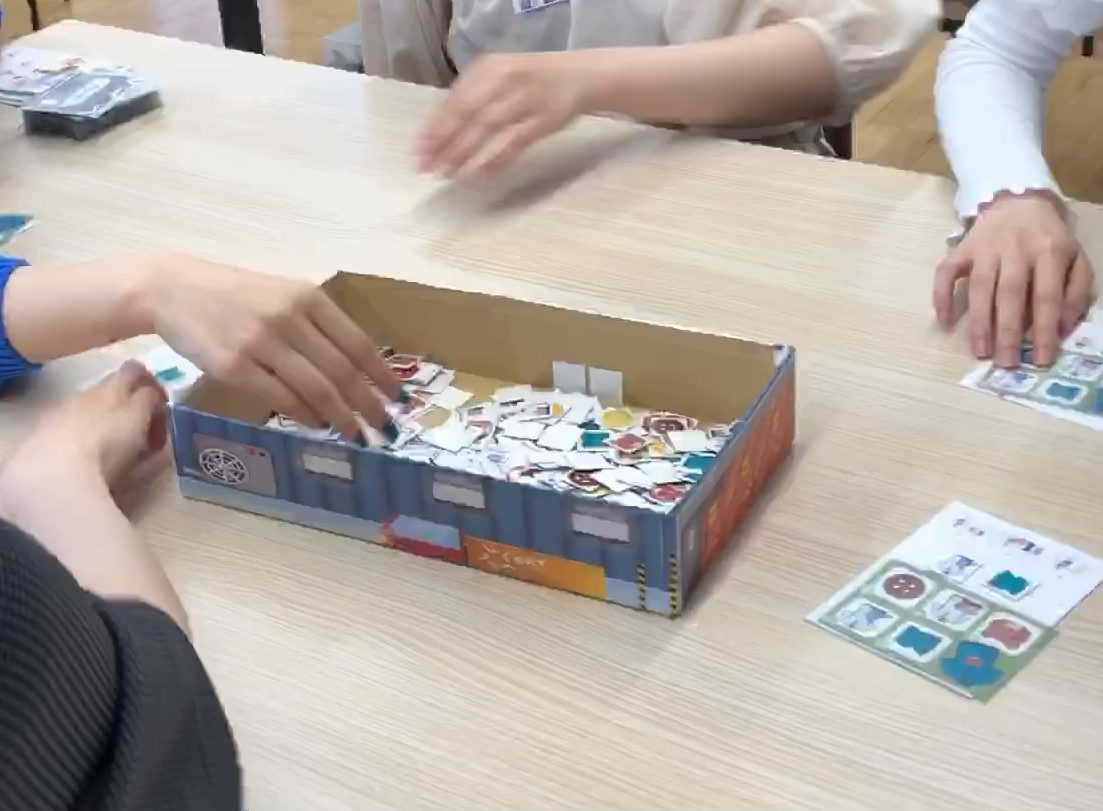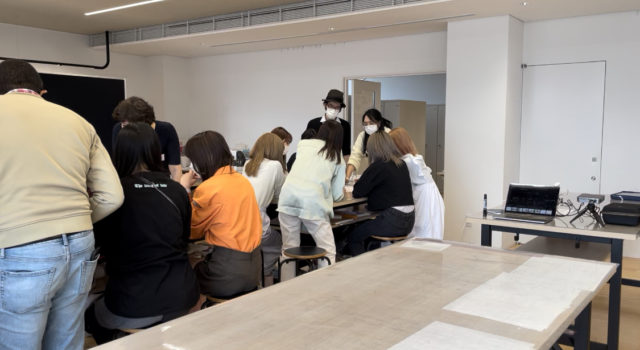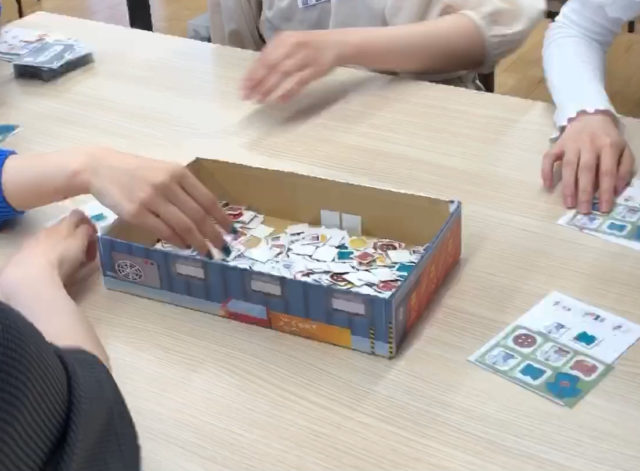
[Activity Report] We conducted a trial of soft skills training with board games at Aichi Bunka Fashion College2022.05.13 Yujiro Yamazaki East Asia
Currently, the SKY project is developing soft skills training program. This activity is enabled by the financial support of the Japan International Cooperation Agency (JICA), under the project title “Skills assessment and development of the training programs to mitigate the skills gaps in the small- and micro-enterprises.” Soft skills are the capacity to develop good interpersonal relationships and attitudes toward work. While the importance of soft skills has been highlighted recently, there are no established and effective methods for formulating them. While many training programs deductively lecture the list of essential skills, they are not suited for participants to understand why such skills are important and grasp how to practice them in their daily work. Therefore, the SKY project develops a training program that uses board games whose settings are made similar to the participants’ workplace. They are made for participants to collaborate while competing and become aware of the strategies to improve productivity. With two board games accompanied by an introduction and group discussions, the program leads them naturally to acquire soft skills.
So far, we have developed prototypes of the board games. In mid- to late April, we conducted a series of training trials using them with post-secondary vocational students at Aichi Bunka Fashion College, Nagoya, Japan.
The students may not be able to play the games well at first. However, while playing, they start to discuss ideas and develop joint strategies to improve their productivity as a team. In the post-training questionnaire, we found students’ statements that indicate the games’ positive effects on them to reflect on their skills. Someone wrote, “Calling out to each other and cooperating were important for enhanced productivity.” Other comments include: “To improve work efficiency, I tried to predict my task by looking at the works team members are doing”; “I realized that I have not been able to do what seems to be commonsense”; and, “I don’t have an experience of full-time employment yet, but I think I can make use of these skills in the part-time job I do now.
Currently, we are statistically examining the impact of this trial soft skills training, using the pre-and post-intervention questionnaire returns. We will modify the design of games and the whole training program based on these trial outcomes and start to prepare for its implementation in Ethiopia.
The report of this trial intervention is also available on JICA Chubu’s Facebook site. To see it, please click here.




